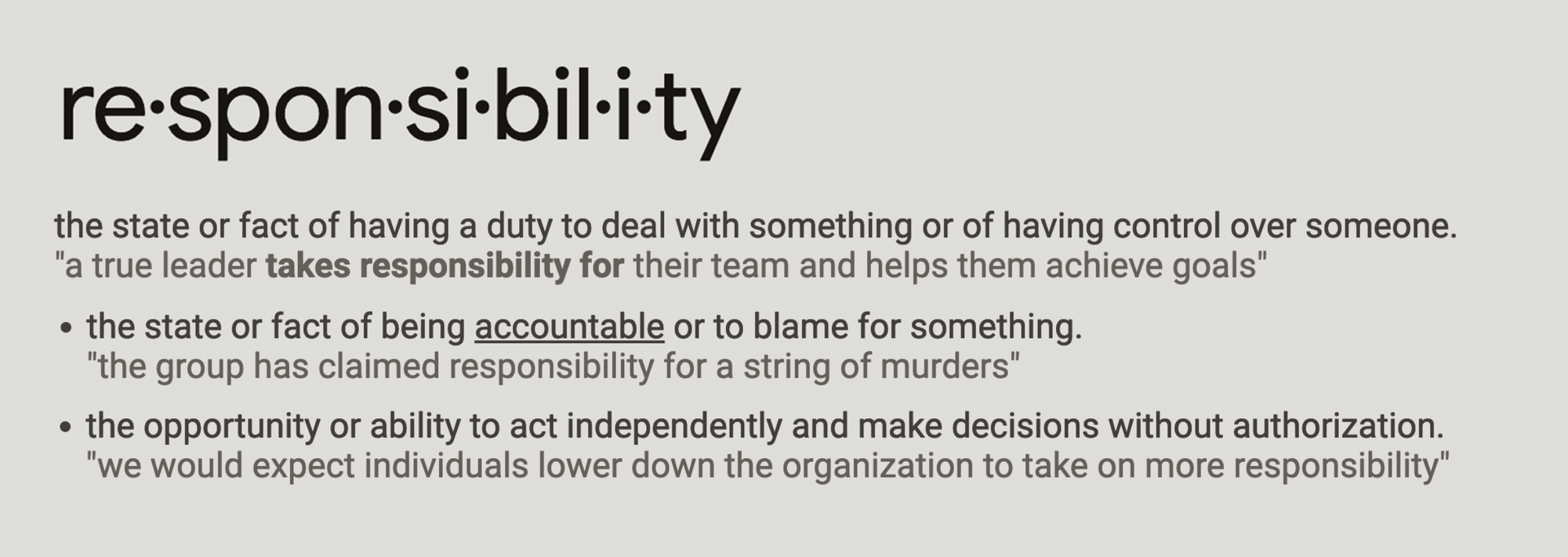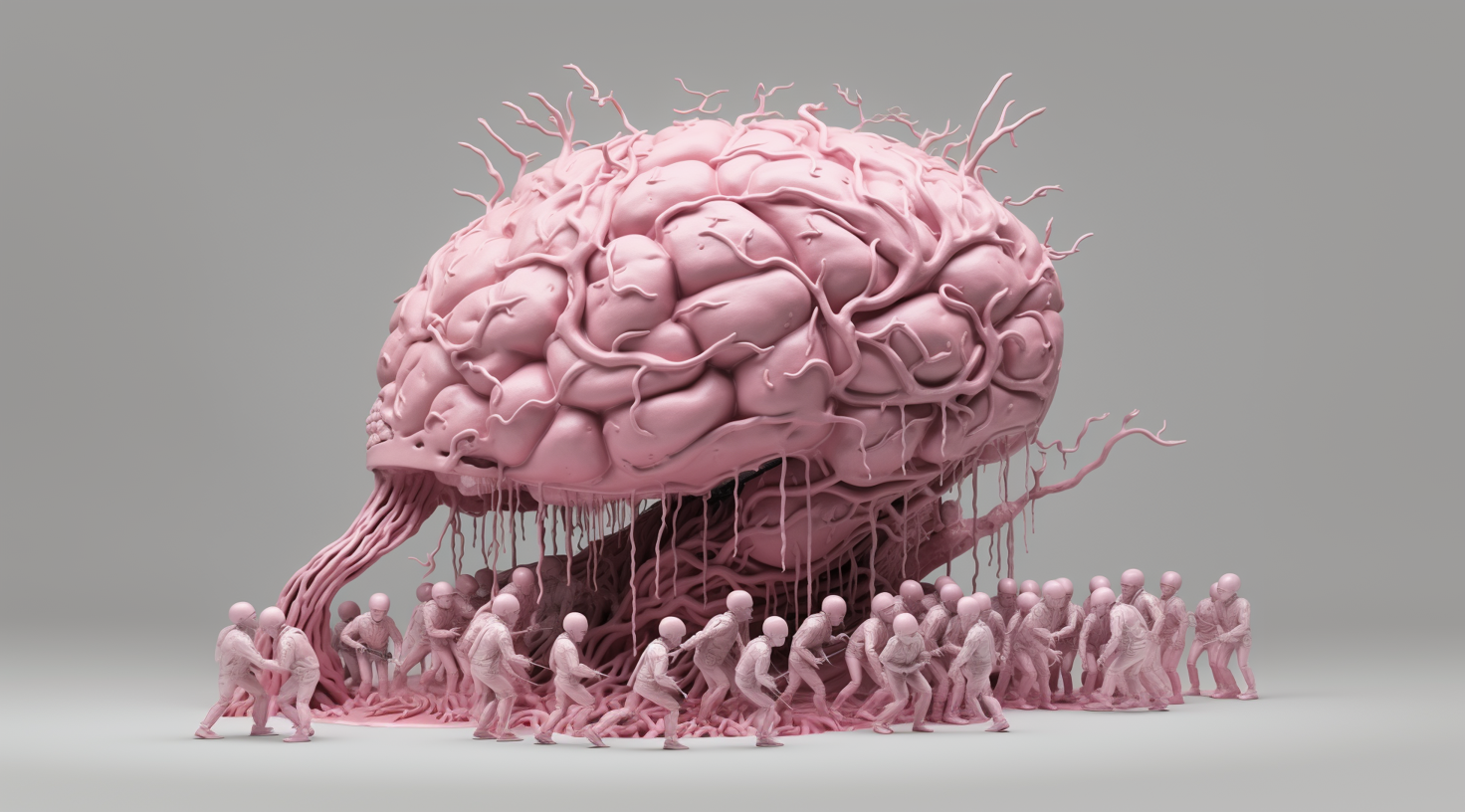[ad_1]
One of crypto’s most famous sayings is “come for the money, stay for the technology.”
Meaning, the lure of wealth may pull you towards the crypto-rabbithole, but it’s the depth of the technology that sucks you in. This depth is why the “crypto-person” in normie social circles is such a salient archetype.
Seeing just how deep crypto goes can change you. Take a moment to reflect upon who you are as a person since you got into crypto: how have you grown? Has your worldview shifted? What do you consider important now – that you didn’t before? Are you different now?
One of the more magical things about crypto is that it provides a new lens for viewing the world. Let’s dig into this worldview further and showcase what crypto gives the individual and demands of us, too:
The Web3 Psychology
There is a trichotomy of tech, society and the individual. Societies nurture individuals. Individuals produce technologies. Technologies help individuals express ideas. Ideas change societies. This is the arc of history.
Now, technology has a special role to play in the above trichotomy. Societies adapt. Individuals die. But technology, once discovered, stays locked in. There’s no putting the technology genie back into the bottle. There’s no undoing foundational structures like the internet.
Technologies are pigeonholes for progress, and society adapts to the most revolutionary marginal technology that its individuals are pioneering in the current age. Perhaps this is why Twitter feels like such a special place where the margins of society can become mainstream ideas.
Web2 is the ‘current meta’ of social structures. Facebook, Instagram, Twitter, etc., are technologies that have defined much of what society looks like. They are platforms for ideas, and therefore are idea-mediators.
Web2, along with the Nation-State, represents a huge chunk of how society operates. When individuals want to do something, express some idea, or exert some change upon the world, they must do it through these mediums. If they want to change the rules, they must push their idea through the trials of Nation State legislation. If they want help with this, they must share their idea through Web2 platforms.
On Bankless, and in crypto broadly, we often dump on Web2 and Nation-States. We focus on their shortcomings and their oppressive natures. We are merely serfs on Zuckerberg’s estate! And we are mere subjects of our Nation-State laws and taxation systems! But… these are also the best systems that we’ve come up with so far. Thanks to Web2, our ideas can scale, and thanks to the Constitution, many freedoms are protected.
But these are just the current metas of social technologies, and metas change!
Technologies are adopted simply because they offer a better service than their predecessors. If they don’t, then they’re not adopted and we don’t talk about them. They stay as ideas that never caught on – tweets that never took off.
All of that said, Web3 is here to stay. It is both a technology and an idea, and the Web3 genie is violently out of its bottle. Like I said in the opening, crypto is a lens for viewing the world. It allows you to see the emperor without their clothes… the person behind the curtain… the puppeteer and their strings etc., etc..
Web3 is a platform for individuals to become the best versions of themselves.
Web3 brings us powerful tools. New DeFi primitives. Direct ownership. The ability to be your own bank. The ability to produce a financial asset. All of these things are revolutionary and each one will have its own impact on what society looks like.
But crypto is a very deep technology. It penetrates beyond all other technologies and goes straight to the core of what it means to be human. We are lucky to be alive during the maturation of a technology that has implications that go so deep. Nation-States must contend with it. The internet will adapt with it. Web2 must answer it.
But what about you – the individual? How will you change, as a result of the shifting platforms under your feet? Who will you become when the protocols that you operate on become more powerful?
Cryptography is an asymmetric technology that shifts power to the individual.
Using cryptography is trivial, but breaking it is hard. It gives individuals the same level of power as a bank with a vault or a nation-state with an army. No amount of tanks, planes, and steel can part you from your assets. All of the worldly powers-that-be must ask for your permission, not your forgiveness.
The Responsibility of Web3
With all of that, we can finally get to the punchline of this article.
Crypto protocols imbue us with responsibility.
The ability to be our own bank, hold our own assets, vote on our own protocols – these are all powers that individuals have not had before. Our previous technologies have didn’t enable them. We’ve only had representative democracies, in which we give up our voice to a representative we must trust. We’ve had banks we trust to hold our money, custodians we trust to hold our assets, and brokers we trust to fairly fulfill our orders.
While each singular instance of releasing responsibility isn’t significant, micro-absconsions from responsibility coagulate and coalesce into singular, large scale problems that turn into society’s darkest clouds. These choices that we are forced to make turn into the incumbents that define the status quo. Banks that are too big to fail. Misaligned career-politicians. Facebook, Twitter, and all of the other Web2 platforms that lock us in.
Cryptographic private keys are vehicles for responsibility.
The definition of the word responsibility is something that I think all Web3-ers would enjoy

That line “the opportunity or ability to act independently and make decisions without authorization,” sticks out to me – this is what permissionlessness is! This is what crypto enables! This is also what the current state of society lacks.
Anything that goes inside of our private keys become things that we are responsible for. The ‘things’ that can go inside can be anything! This is the power of smart contracts – anything that can be imagined, can be coded, deployed, and minted into our wallets. If it is something of value, then it can be codified into an asset that we then become responsible for.
With cryptographic private keys, we have the means of direct control over our lives. Not just by being our own bank and custodying our own assets, but also by participating in governance and dictating how our protocols behave! In Web2, we are served a product that we have no say in. In Web3, our protocols respond to our choices, and therefore the choices we make really matter!
We, for the first time, have direct responsibility over the protocols that dictate our lives. Never before have we had the tools to accept so much responsibility, so easily. So my question to you, reader, is similar to the one we started with. Now that you have full control… who will you become?
With the power of private keys at your finger tips, and an army of developers building doors for you to open… what doors will you choose? When the power of private keys trickles down to all of society – how will society react? What radical new ideas will individuals create that change the arc of humanity? What will humanity be like after the pendulum of responsibility shifts from the few to the many? These are very deep questions, and only time will tell!
We have seen both great good and great evil spawn from the crypto rabbit-hole. If there is one thing that is certain, it is that every individual having the power of cryptography at their fingertips brings a lot of chaos to the world, but I choose to believe that over the fullness of time, it is not chaotic evil, but chaotic good.
[ad_2]
Read More: www.bankless.com










 Bitcoin
Bitcoin  Ethereum
Ethereum  Tether
Tether  XRP
XRP  Solana
Solana  USDC
USDC  TRON
TRON  Dogecoin
Dogecoin  Lido Staked Ether
Lido Staked Ether  Cardano
Cardano  Wrapped Bitcoin
Wrapped Bitcoin  Hyperliquid
Hyperliquid  Wrapped stETH
Wrapped stETH  Bitcoin Cash
Bitcoin Cash  Sui
Sui  Chainlink
Chainlink  LEO Token
LEO Token  Stellar
Stellar  Avalanche
Avalanche  USDS
USDS  Toncoin
Toncoin  WhiteBIT Coin
WhiteBIT Coin  Shiba Inu
Shiba Inu  Litecoin
Litecoin  WETH
WETH  Hedera
Hedera  Binance Bridged USDT (BNB Smart Chain)
Binance Bridged USDT (BNB Smart Chain)  Wrapped eETH
Wrapped eETH  Monero
Monero  Ethena USDe
Ethena USDe  Polkadot
Polkadot  Bitget Token
Bitget Token  Coinbase Wrapped BTC
Coinbase Wrapped BTC  Pi Network
Pi Network  Uniswap
Uniswap  Pepe
Pepe  Aave
Aave  Dai
Dai  Ethena Staked USDe
Ethena Staked USDe  Aptos
Aptos  OKB
OKB  Bittensor
Bittensor  BlackRock USD Institutional Digital Liquidity Fund
BlackRock USD Institutional Digital Liquidity Fund  NEAR Protocol
NEAR Protocol  Internet Computer
Internet Computer  Jito Staked SOL
Jito Staked SOL  Cronos
Cronos  Ethereum Classic
Ethereum Classic  Ondo
Ondo